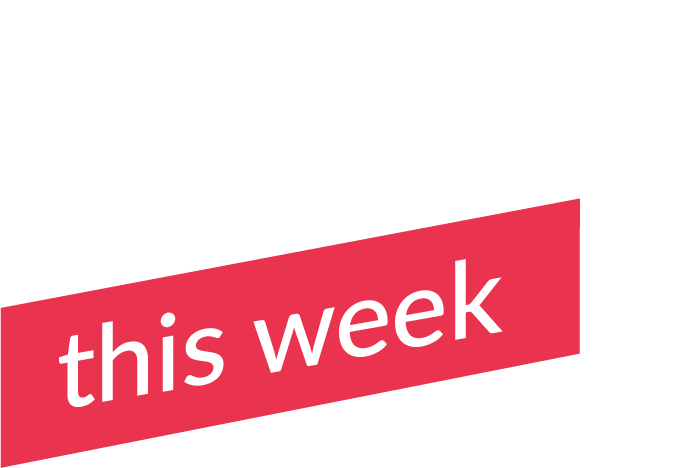Top of mind: Happy Sunday!
Following a six-week investigation into allegations of sexual assault and sexual impropriety against Rise CEO Eke Urum, the panel released their findings exonerating the CEO of assault charges, which was at the heart of the investigation but revealed a toxic work culture.
I got an exclusive look at the panel report from trusted sources and had a prior conversation with the CEO about the investigation.
Heads up! I’m an early investor at Rise. However, I write this story not wearing my investor hat but as a tech media owner.
Let’s get to it.
3 big things:
- The panel report
- Nigeria sues Meta
- Uber hikes fares
“Step Aside Eke”: Inside the Panel Report of Rise CEO

The short: An investigative panel comprising investors in a major Nigerian fintech startup, Rise, recommended that Eke Urum, the company’s founder, step aside as CEO.
At the centre of the panel investigation are six employees who testified against the CEO, accusing him of sexual assault, sexual impropriety, abuse of power, and retaliation.
What they found: The three-member panel interviewed 49 current and five ex-employees in a six-page report. Among the key testimonies – two sexual assault allegations were unproven. At the same time, the panel established two proven cases of abuse of power, one case of sexual impropriety and one of workplace bullying.
The consensus among interviewed employees established that Urum had toxic approaches to management, with specific examples of yelling, cursing, intimidation by threatening to fire staff, unaccountability, and disempowering his co-founders and leadership team.
Urum, who had received a public accusation last year from an ex-staffer for his brash management style, took responsibility. “I could have been a lot kinder in my approach to issues, and I accept that I have not always acted in line with the core values of the company,” he said.
The contradiction: Urum kept a low public profile until the release of the report but issued a statement disputing TechCabal’s reporting. He argued that the panel had exonerated him regarding the sexual assault case – which was at the heart of the investigation – a claim consistent with the panel findings.
However, in the statement, he stated:
I want to reiterate that I never had any sexual relations with an employee.
Employees familiar with the claims stated that Urum had been in a romantic relationship with one staff member, now his fianceé. Urum admitted to a relationship with a former employee, claiming he insisted that she resign before they had officially started dating.
In the proven case of sexual impropriety: Urum gave his account of the story. He claimed that he’d been on a work trip with the then COO, and at check-in, the hotel receptionist asked if they would be getting one room or separate rooms, to which Urum answered:
One room, but make sure it has a ‘kiddie bed’ for her to sleep in.
Urum offered an apology in his response while attempting to exonerate himself:
The case of sexual impropriety they found credible was a joke that was not even sexual in its context, but which someone with enough motivation could interpret that way (more on this later).
I asked Eke if he understood why this joke could have been inappropriate in the context of an employee-employer relationship. He admitted he understood and took responsibility.
Culture, Culture, Culture: The tech startup culture in Nigeria is broken, and most CEOs have way too much freedom. I’m an investor in Rise, and I was surprised to find that there was no formal Board of Directors at the company.
The panel report also revealed that there was no senior and experienced human capital management executive to lead people operations at the 50-person company.
In addition, Eke’s relationship with an employee (now his fianceé) and his claim that he insisted she resign before they formally dated further exposes the lack of clear policies at the company.
Fraternisation in corporate organisations is not novel. For example, bill Gates, CEO of Microsoft, married Melinda French, a product manager at the company. However, policies address how issues like this should be dealt with and ideally, the CEO has to recuse himself from taking decisions concerning an employee.
What’s next at Rise: The panel recommended that Urum step aside for Rise’s Head of Operations, Tony Odiba, to serve as interim CEO while Urum joins the Board of Directors, leading investments and guiding technology. Urum said it was unnecessary as he voluntarily stepped aside to allow an unbiased investigation. This leaves a lot of questions unanswered, like who appoints the substantive CEO?
The panel acknowledged Eke’s skill for recognising good talent, despite a high turnover of said talent due to his leadership style.
The panel declined Rise compensate accusers with cash, which could signal wrongdoing but recommended the company pay for therapy and counselling for any employees with a proven allegation that take up the offer.
Final thoughts: Since the panel lacks the powers of a formal board, its report remains an opinion, and not much is enforceable on the corporate side of the business.
However, the jury’s out on if Urum pushes back against a panel of his influential investors. While the debates continue around the actual implication of the panel report, this experience remains a teachable moment for Urum and other startup founders.
Urum admits he has a lot to learn and still has a chance to bounce back in the future. But, for now, Rise investors can be at peace knowing that the company is doing business as usual and that Urum will continue to lead his vision and business strategy with his role on the board.
Nigeria needs money. Sues Meta for ₦30 billion

The short: Nigeria’s advertising regulator sued Meta and its regional advertising partner – AT3 Resources, for ₦30 billion for allegedly breaking advertising laws.
The suit: Nigeria’s Advertising Regulatory Council of Nigeria (ARCON) is seeking ₦30 billion (~$50 million) in sanctions for violations of advertising regulations and revenue loss due to Meta’s use of unapproved ads on its platforms.
ARCON said it does not wish to regulate digital media, but “it would not permit unethical and irresponsible advertising on Nigeria’s advertising space.”
Power trip: It’s an election year, and Nigeria’s government is broke. Industry insiders believe this is a play by the government to generate revenue before the current administration signs out. Meta’s just collateral damage.
ARCON says they’re not regulating digital media, which contradicts the hefty lawsuit on Meta and its advertising partner, but the gag is ARCON is backed by law to do as they please.
ARCON gets this from the new bill passed by the National Assembly and approved by the Nigerian President. The new bill abolished the Advertising Practitioners and enacted ARCON, recognising them as the apex authority for Nigeria’s advertising industry.
In other news, the Advertisers’ Association of Nigeria (ADVAN) and ARCON butted heads recently following ARCON’s ban on hiring foreign voice-over actors and models in the country. ADVAN protested the rule saying ARCON should focus more on catalytic laws that benefit the industry. Ooo, the shade.
Final thoughts: ARCON is fresh from the legislature with an appetite for blood. Instead of exploitative lawsuits disguised as law, I’d like to see ARCON pursue better initiatives that help the industry rather than attack its players.
Uber hikes prices for Nigeria’s rich
The short: Brace yourselves, Lagosians. Uber just increased its fares.
Price went up: Uber justified this bump thanks to changing economic conditions, including increased fuel costs. As a result, the base fare will rise from ₦340 to ₦450, the minimum cost will increase from ₦600 to ₦650, and the per-minute fare will rise from ₦14 to ₦16.
If you factor in Lagos traffic, this adds up.
The bottom line: Uber says this change will favour its drivers, but this isn’t just about the drivers.
In 2017, Uber lowered its rates in a turf war with rival Taxify. The company sent a message to its drivers –
As of today, Uber has reduced fares by 40% in Lagos. This means you can travel for business or explore your city for less than ever before.
But Uber is very different from what it was in 2017. Its peak focus is on profitability. CEO Dara Khosrowshahi stated he’s laser-focused on making Uber’s unit economics work before going big – which led to Uber scrapping side projects like driverless cars.
Final thoughts: It’s a big win for Lagos drivers, but not so much for passengers. With the current economic climate, I wonder how much longer it would take before riders are given the gift of new price hikes.
—
That’s it for the week. I’d love to hear your thoughts about this week’s issue. Please respond to this email or find me on Twitter @fatuogwuche 🙂
Ps – do us a solid by sharing the newsletter with your network of tech enthusiasts. Invite them to join the party 🙂
See you next Sunday!

